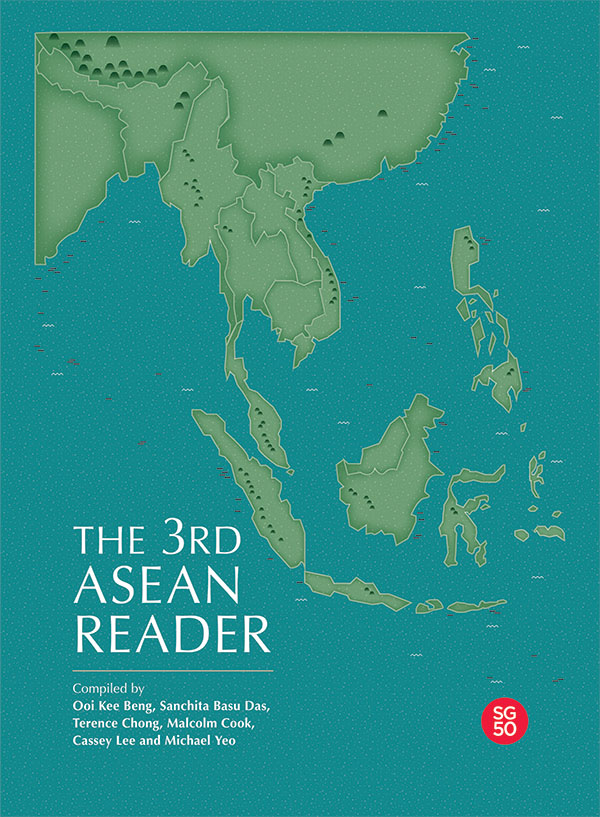Book contents
- Frontmatter
- Contents
- Preface
- Forewords to the First and Second ASEAN Reader: ASEAN: Conception and Evolution
- Forewords to the First and Second ASEAN Reader: ASEAN: The Way Ahead
- Forewords to the First and Second ASEAN Reader: New Challenges for ASEAN
- SECTION I ASEAN: THE LONG VIEW
- SECTION II COUNTRY ANALYSES
- SECTION III COMPARATIVE ANALYSES OF THE REGION
- Southeast Asian Societies
- The Southeast Asian Economy
- Southeast Asian Politics
- 20 Low-Quality Democracy and Varied Authoritarianism: Elites and Regimes in Southeast Asia Today
- 21 Social Foundations of Governance in Contemporary Southeast Asia
- 22 Decentralization and Democratic Governance in Southeast Asia: Theoretical Views, Conceptual Pitfalls and Empirical Ambiguities
- 23 Authority and Democracy in Malaysian and Indonesian Islamic Movements
- 24 Southeast Asia in the US Rebalance: Perceptions from a Divided Region
- SECTION IV INTERNATIONAL DEVELOPMENTS
- SECTION V INSTITUTIONS OF ASEAN
- SECTION VI ASSESSING ASEAN'S INTERNAL POLICIES
- ASEAN Political Security Community
- ASEAN Economic Community
- ASEAN Socio-Cultural Community
- SECTION VII ASSESSING ASEAN'S EXTERNAL INITIATIVES
- ASEAN Processes
- ASEAN's Major Power Relations
- SECTION VIII SOUTHEAST ASIA: PERIPHERAL NO MORE
- Bibliography
- The Contributors
- The Compilers
21 - Social Foundations of Governance in Contemporary Southeast Asia
from Southeast Asian Politics
Published online by Cambridge University Press: 22 June 2017
- Frontmatter
- Contents
- Preface
- Forewords to the First and Second ASEAN Reader: ASEAN: Conception and Evolution
- Forewords to the First and Second ASEAN Reader: ASEAN: The Way Ahead
- Forewords to the First and Second ASEAN Reader: New Challenges for ASEAN
- SECTION I ASEAN: THE LONG VIEW
- SECTION II COUNTRY ANALYSES
- SECTION III COMPARATIVE ANALYSES OF THE REGION
- Southeast Asian Societies
- The Southeast Asian Economy
- Southeast Asian Politics
- 20 Low-Quality Democracy and Varied Authoritarianism: Elites and Regimes in Southeast Asia Today
- 21 Social Foundations of Governance in Contemporary Southeast Asia
- 22 Decentralization and Democratic Governance in Southeast Asia: Theoretical Views, Conceptual Pitfalls and Empirical Ambiguities
- 23 Authority and Democracy in Malaysian and Indonesian Islamic Movements
- 24 Southeast Asia in the US Rebalance: Perceptions from a Divided Region
- SECTION IV INTERNATIONAL DEVELOPMENTS
- SECTION V INSTITUTIONS OF ASEAN
- SECTION VI ASSESSING ASEAN'S INTERNAL POLICIES
- ASEAN Political Security Community
- ASEAN Economic Community
- ASEAN Socio-Cultural Community
- SECTION VII ASSESSING ASEAN'S EXTERNAL INITIATIVES
- ASEAN Processes
- ASEAN's Major Power Relations
- SECTION VIII SOUTHEAST ASIA: PERIPHERAL NO MORE
- Bibliography
- The Contributors
- The Compilers
Summary
Capitalist development and its attendant crises have posed differing challenges for political and economic elites in Southeast Asia. Indeed, Singapore powerfully illustrates how a wholehearted embrace of global capitalism does not inexorably translate into a convergence around either liberal or democratic governance institutions. It is a case of outstanding elite cohesion even in the face of periodic global economic crises. However, such cohesion and the durability of authoritarian rule in Singapore is a function of a particular form of state capitalism.
PAP leaders realized, though, that they also needed to develop the party's own power base and towards this end a merger of state and party reshaping the political economy of Singapore was affected. This entailed not just a powerful new class of politico-bureaucrats, but also a form of state capitalism that rendered many Singaporeans directly or indirectly dependent on the state for economic and social resources, including housing, employment, business contracts, and access to personal savings. This structural relationship fostered vulnerability to political co-option and intimidation and further limited the possibility of alternative social and economic bases from which challenges to the PAP could be effectively mounted.
Importantly, the emergence of this state capitalist class not only cultivated a strong nexus of material and ideological interests between state bureaucrats and political leaders. It also contained and circumscribed the domestic bourgeoisie's development as a matter of political strategy, given suspected links in the early 1960s between elements of this class and oppositionists (Rodan 1989: 98). As a result, the domestic bourgeoisie's economic opportunities have been heavily conditioned by, and dependent on, state capitalism-most recently through offshore investment strategies by GLCs (Rodan 2006).
The political inclinations and capacities of the middle class have been no less influenced by the structural relationships embodied in Singapore's state capitalism. Much of that class is either employed within the state in one or another of the government departments, statutory bodies, or GLCs, or indirectly derives its livelihood from servicing state capitalism through the provision of professional, legal, commercial, or other services.
Therefore, the PAP state capitalist model has thus far succeeded in generating the social foundations for the consolidation of the existing elite's own reproduction.
- Type
- Chapter
- Information
- The 3rd ASEAN Reader , pp. 112 - 116Publisher: ISEAS–Yusof Ishak InstitutePrint publication year: 2015



